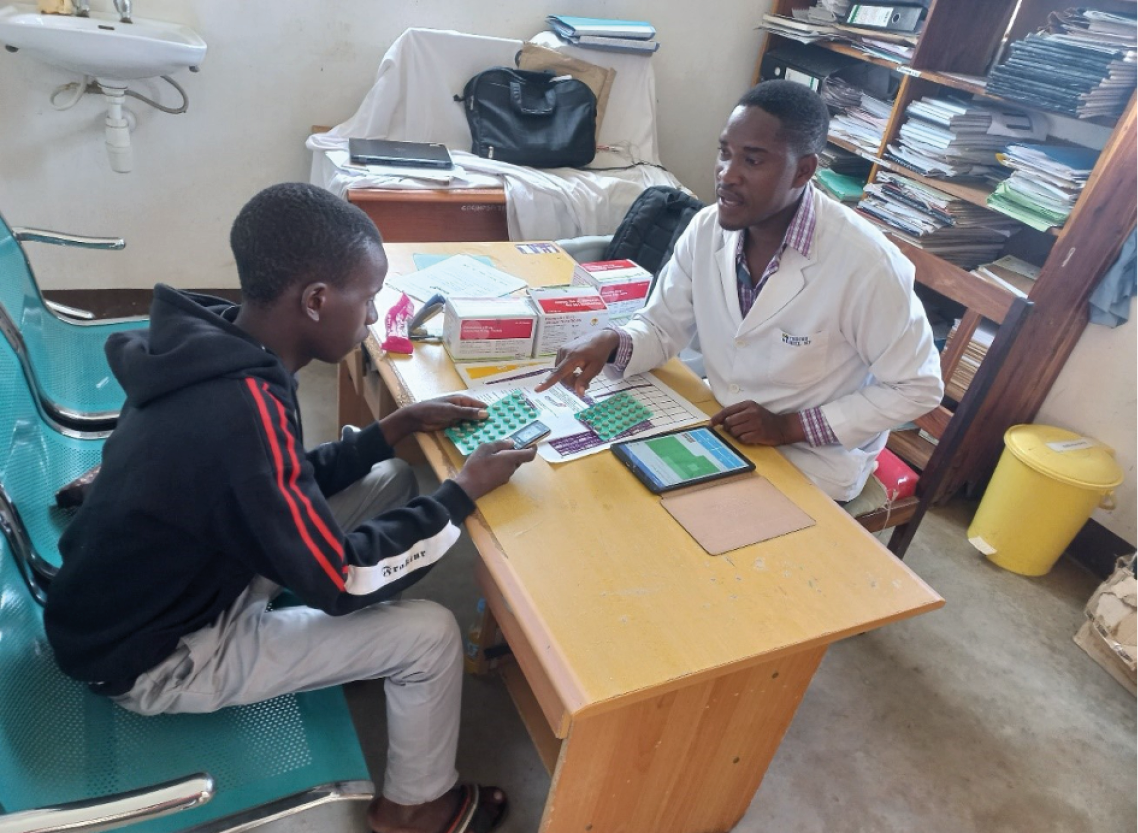Innovations in health programmes are moving fast paced, and health care workers (HCWs) are embracing it. In Tanzania, the National Tuberculosis & Leprosy Programme (NTLP) supports tuberculosis (TB) patients to adhere to treatment using digital adherence technology (DAT) combined with an adherence platform through the ASCENT project. This supports case-based management and enables HCWs to log into a single portal to support the entire cascade of care, from registration to follow up and engagement.
The adherence platform has been a useful tool for HCWs on managing patients on treatment. In an interview with Michael Ng’wetelwa, a 35-year-old TB/HIV Officer at the Chato District Hospital, he mentioned that: “…. My work has become easy, all adherence data of my TB patients are easily accessible. They are just a click away, helping me plan and provide support to patients who need extra follow-up. To me, the DATs combined to adherence platform is a great innovation that’s easy to use. The government should consider scaling up so more patients benefit and to reduce work burden for HCWs”.
Michael finishes by saying ‘…The key to successful implementing of the digital adherence technologies is choosing the most appropriate and easy to use technology to meet the demands of a specific group of people or clients in the most effective way and for Tanzania the smart pillboxes have proved that’.
Photo: Michael Ng’wetelwa providing counselling and technical support to a patient on using the DAT to log the daily dose on the adherence platform.
The Unitaid-funded and supported ASCENT project is led by KNCV Tuberculosis Foundation in partnership with The Aurum Institute, London School of Hygiene & Tropical Medicine, and PATH.
